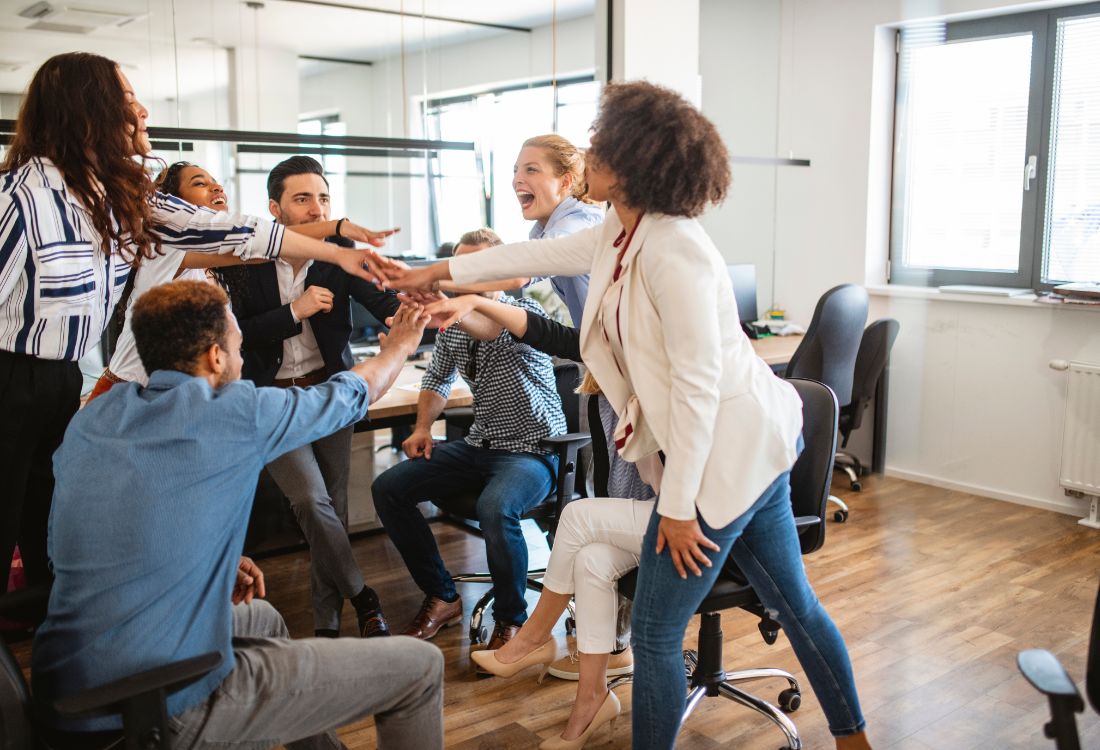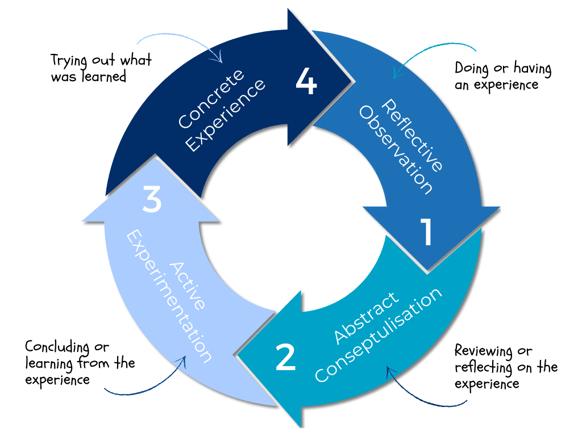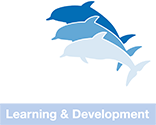
Why Experiential Learning Is The Key To Positive Behaviour Change In The Workplace
Changing the culture of your workplace isn’t just a case of introducing a development programme or training for your employees. Problems with business culture often run far deeper than a lack of knowledge or an absence of desirable skills. Instead, it tends to be as a result of deep-rooted and learned behaviours which are much more difficult to change.
Experiential learning is an innovative approach, that can unlock long-lasting changes in the workplace by redefining people’s behaviour, driving personal development, enhancing performance, and helping businesses foster a more positive workplace culture.
What Is Experiential Learning?
Simply put, experiential learning is learning through doing and reflecting. David A. Kolb, best known for developing Kolb’s Experiential Learning Cycle in 1974 and later his Learning Styles Model in 1984, describes it as a holistic process where knowledge results from the combination of grasping and transforming an experience.

Kolb’s Experiential Learning Cycle (1974)
Kolb’s theory has influenced the work of teachers, trainers, and L&D professionals around the globe to the value of tailored and experience-driven learning processes, including us!
In this article, we’ll explore the advantages of experiential learning in more detail and how it can specifically influence positive attitudes and behaviours at work.
Creating Lasting Behaviour Change
A key feature of experiential learning is its immersive nature which helps to shape an environment in which employees can engage in practical activities, allowing them to put theory into action and experience successes and failures first-hand in a risk-free environment. Because individuals can participate in authentic learning opportunities in a safe space where they are empowered to reach their own conclusions, they are more likely to understand the effects of their behaviour and want to make a change.
In his book ‘How People Learn’, Nick Shackleton-Jones said, “It’s impossible to learn something you don’t care about” and that’s why most learning interventions fail. By making connections to what people really care about through experiential learning and giving them the correct support, they will be able to identify behaviours that align with both their values and beliefs and those of their organisation, motivating them to change their behaviour and perform to a higher standard.
Customised Learning Objectives
The most effective experiential learning programmes start by identifying specific learning objectives that are tailored to your people’s needs. By pinpointing areas for improvement, at both an individual and team level, and designing activities to address them, learning experiences will directly align to the desired attitudes and behaviours you want to see your employees demonstrating. This bespoke aspect also ensures that behavioural changes will directly align to your business goals, contributing to your company's overall vision for success.
Skill Development Through Immersion
With increased motivation and personal reflection comes a desire to want to learn new skills. Experiential learning utilises a variety of engaging and rewarding activities to improve and develop the crucial skills needed to thrive in the workplace, while catering to different learning styles and demonstrating the power of different approaches. Edgar Dale’s well-known Cone of Experience Model teaches us that people remember approximately:
- 10% of what they READ
- 20% of what they HEAR
- 30% of what they SEE
- 50% of what they SEE and HEAR
- 70% of what they SAY and WRITE
- 90% of what they DO
Hands-on experiences can help nurture skills such as leadership, communication, problem-solving, and decision-making, and it makes learning memorable! As employees master these skills through experiential learning and gain the confidence to apply them back in the workplace, they enhance their overall performance and contribution, thereby boosting your organisation’s return on investment (ROI).
Creating A Positive and Innovative Culture
The impact of experiential learning goes further than simply improving employee performance. By infiltrating the very DNA of your company, it creates a positive workplace culture that encourages innovation and experimentation, inspiring employees to think outside the box and explore new approaches to their work. Because your people care about their work and have learned to exhibit greater agility and adaptability, your business will be more able to respond to market changes and unforeseen challenges. Ultimately, employee morale and innovation is critical for the longevity of your organisation and to futureproof it during times of economic stress.
Find Out More
To find out more about how our experiential learning and development solutions could facilitate positive behavioural and cultural change in your organisation, please get in touch with Grahame Robb Associates today.
Image Source: Canva



